The Ultimate Guide To Proteins
Over the past two decades, protein as a nutrient has been at the front and centre of most conversations around health and fitness. It has also been scrutinized a lot more than any other nutrient. No other nutrient has gone through the ups and downs protein has. And despite all the criticism and backlash, protein is also one of the most popular nutrients from the point of view of general awareness and businesses involved.
Today, let’s dive deep into the world of protein. Let’s understand what this nutrient is and what is all this hype around it all about.

What is protein?
Protein is one of three essential macronutrients that are needed for a healthy, well functioning of body. The other two nutrients are fats and carbohydrates.
Carbohydrates are required for energy and fats for hormone production, brain cell function, protection of organs and providing energy in the absence of carbohydrates. Proteins are basically the building blocks of the body. Protein plays a structural as well as chemical role in the body. Our muscles are made of proteins, all tissues, organs are made up of proteins, cells are lined with a special protein called “lipoprotein”, our hair and nails are proteins called “keratin”, the skin health is maintained thanks to a protein called “collagen”. Interestingly, collagen has now become one of the most popular supplements for beauty. The enzymes that digest food in the body are proteins, hormones are proteins, antibodies that kill viruses in the body are proteins, haemoglobin is a protein that carries oxygen to each cell, and ferritin is a protein that stores iron in the blood.
Long story short, protein is one of the most essential nutrients and it is our job to ensure we include enough protein in the diet.
Where do we get protein?
Protein is available in both plant and animal-based food.
When you eat any protein, it is broken down in your body. The final product of this breakdown is “amino acids”. Animal-based proteins are considered “complete” because, during the process of breakdown, they give all the essential amino acids that your body requires. Plant proteins, on the other hand, generally lack 1-2 amino acids, making them “incomplete”. Animal proteins are thus considered to be superior in quality.
While this may be marginally true, this is a problem that can be solved without too much effort. In fact, Indian food has addressed this problem long before Modern Health Sciences even identified this as a problem. When you combine two plant-based sources from different food groups, the problem of “incomplete” proteins is solved completely. Dal and rice is the perfect example of this. Dals naturally lack an amino acid called “methionine” and rice lacks “lysine”. By combining the two, you are getting “complete” protein. Additionally, vegetables and nuts also contain amino acids that can complete proteins.
In the past couple of years, the conversations around Veganism and all the benefits it promises have led to even more confusion around this whole complete and incomplete protein aspect. In my opinion, if you are eating a diet that has diversity, you will get all the amino acids, that is to say, your dietary proteins are complete. This aspect should thus not be a deciding factor when you are choosing to go vegan or vegetarian or simply reducing your animal food frequency.
common sources
-
-
- Dals like moong, toor, arhar, masoor, moth, etc.
- Beans like chickpeas, lentils, soybean, kidney beans, navy beans, moth beans, dried peas, etc.
- Fresh peas like green peas, edamame, fresh chana, fresh vaal, french beans, broad beans, etc.
- Tofu, Tempeh, Soymilk
- Milk and milk products like curd, yoghurt and cheese
- Nuts like almonds, walnuts, etc.
- Oilseeds like sesame, pumpkin, flax, etc.
- Lean meats like chicken
- Seafood like fish, prawns, shrimps
- Certain vegetables like amaranth leaves, moringa leaves and mushrooms
-
Eggs

Eggs are considered to be the gold standard of proteins and are easily available, easy on the pocket and give you other important nutrients like selenium, iron, vitamin A, etc. Each whole egg gives you 6.3g of protein.
You can eat 2-3 whole eggs daily.
For those who have any health issues, it is important to speak with your nutritionist before including whole eggs. Egg whites are relatively safer for everyone.
Beans and Dals
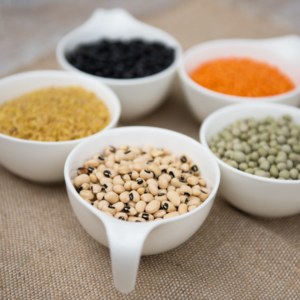
Beans and Dals are part of a food group called “legumes”. These are actually vegetables that have been dried, split, ground, etc to be used in different ways. This food group in general is rich in protein, fibre, complex carbohydrates, antioxidants, B vitamins and various minerals like Zinc, Calcium, etc.
These include lentils, chickpeas, pigeon peas or toor, dried peas or vatana, kidney beans, lima beans, moth beans, navy beans, and many more. India alone is home to more than 200 types of legumes.
This food group has been revered in Indian culture and has been mentioned in multiple scriptures. Every King and Soldier of our country has eaten this group to maintain strength, energy, stamina, and focus.
Each cup of cooked dal or beans gives you 12-15 grams of protein. Eating about 2 cups of beans or dals daily.
Beans are generally a little difficult to digest. Make sure to soak them for 12 hours before cooking to improve digestibility. Combine them with rice or roti or nuts or seeds to complete them.
Sesame Seeds
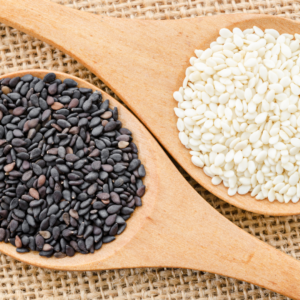
Sesame Seeds are a power-packed and economical source of nutrition. Each spoon contains 3-5g of protein.
In addition to protein, sesame seeds are rich in calcium, selenium, dietary fibre, monounsaturated fatty acids (mufa), antioxidants and more. Sesame seeds are great for immune function, they improve arthritis-related symptoms, relieve constipation when soaked and eaten, and owing to their fat and fibre content, they are also great for diabetics.
These seeds are actually indigenous to India. They are also the first crop to be oiled in the world. They have been an integral part of our culture for as long as we know.
Include about 2 tbsp daily in cooler months. For summer months, it is ideal to soak them for 7-8 hours before eating. They are a great way for vegans to up their calcium intake. You can use this recipe to make a delicious “Matcha Sesame Shot“.
Tofu
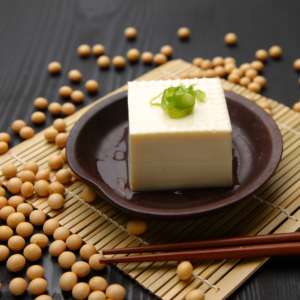
Tofu is cheese made from soymilk. It is a very popular ingredient in East Asian cuisine.
It is one of the easiest ways of increasing your protein consumption. A palm-sized piece of tofu will give you 25 grams of protein. What makes it even better is that it is easy to digest; easy to use (use it like paneer) and does not cause inflammation or blood glucose spikes like paneer.
Tofu or rather soybean is rich in calcium, good fats and protein. Its claim to fame, however, is its phytoestrogen content. These are nutrients that mimic the function of estrogen in the body. This unique ability makes it excellent for women with PCOS and menopausal women. Eating phytoestrogen after or during menopause can reduce hot flashes, reduce the risk of osteoporosis, mood swings and more. For women who have PCOS or generally would like to harness the power of their hormonal cycles, eating phytoestrogens during the luteal phase (i.e. day 15-day 28) can reduce PMS symptoms and improve menstrual cycles.
Eating about 100 grams of protein, 2-3 times in a week is great.
People with thyroid should avoid soy and soy products like tofu. Also, for individuals with gut issues low IBS, stick to firm tofu to prevent any discomfort.
UNDERSTANDING PROTEIN SHAKES
Protein shakes have become a very normal and accepted part of our diets today. While this is not exactly bad, there are a few things one should keep in mind.
- Always add a protein shake after having added protein to each of your meals. Protein shake is a supplement, not a replacement for your meals.
- No more than 1 scoop per day when you are having on your own. The 2nd/ 3rd scoop should only be added if you are working closely with a nutritionist.
- Always read the ingredients and buy one without artificial sweeteners.
- Do some research and buy the protein that is suitable for your requirements. Not everyone works well with Whey.
- Always buy protein from a local manufacturer and directly from their website. This will protect you from the risk of adulteration or selling of expired goods. (you’ll be surprised how often this happens).
I recommend Ace Blend from India and Optimum Nutrition Gold Standard or Gardens of Life globally.
I hope this article gives you some clarity on proteins. Please remember to include the right amount of protein and always balance it with other elements in each meal. If this article does not give you the answers you want, you can explore signing up for one of my personalised programs. You can find details of these programs in the “Services” tab.



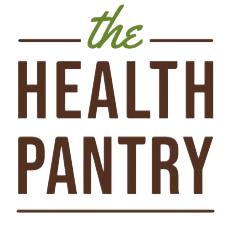
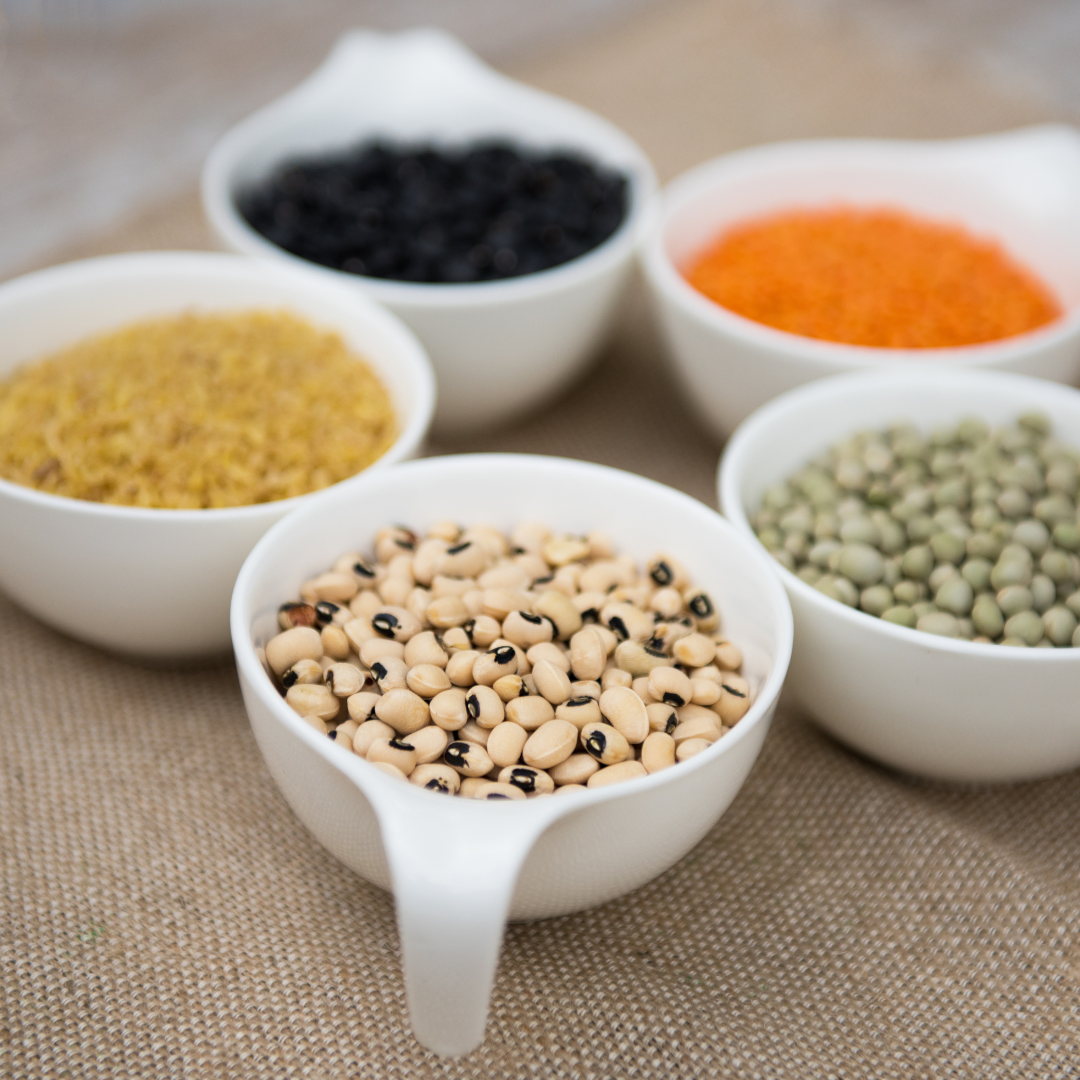



Ravi Tibrewala
Excellent well balanced and informative